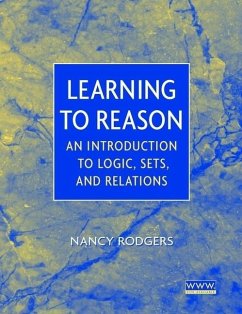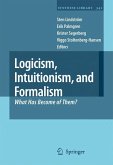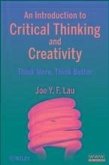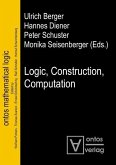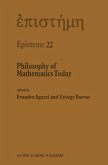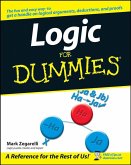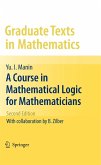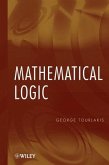Learn how to develop your reasoning skills and how to writewell-reasoned proofs
Learning to Reason shows you how to use the basic elements ofmathematical language to develop highly sophisticated, logicalreasoning skills. You'll get clear, concise, easy-to-followinstructions on the process of writing proofs, including thenecessary reasoning techniques and syntax for constructingwell-written arguments. Through in-depth coverage of logic, sets,and relations, Learning to Reason offers a meaningful, integratedview of modern mathematics, cuts through confusing terms and ideas,and provides a much-needed bridge to advanced work in mathematicsas well as computer science. Original, inspiring, and designed formaximum comprehension, this remarkable book:
* Clearly explains how to write compound sentences in equivalentforms and use them in valid arguments
* Presents simple techniques on how to structure your thinking andwriting to form well-reasoned proofs
* Reinforces these techniques through a survey of sets--thebuilding blocks of mathematics
* Examines the fundamental types of relations, which is "where theaction is" in mathematics
* Provides relevant examples and class-tested exercises designed tomaximize the learning experience
* Includes a mind-building game/exercise space atwww.wiley.com/products/subject/mathematics
Learning to Reason shows you how to use the basic elements ofmathematical language to develop highly sophisticated, logicalreasoning skills. You'll get clear, concise, easy-to-followinstructions on the process of writing proofs, including thenecessary reasoning techniques and syntax for constructingwell-written arguments. Through in-depth coverage of logic, sets,and relations, Learning to Reason offers a meaningful, integratedview of modern mathematics, cuts through confusing terms and ideas,and provides a much-needed bridge to advanced work in mathematicsas well as computer science. Original, inspiring, and designed formaximum comprehension, this remarkable book:
* Clearly explains how to write compound sentences in equivalentforms and use them in valid arguments
* Presents simple techniques on how to structure your thinking andwriting to form well-reasoned proofs
* Reinforces these techniques through a survey of sets--thebuilding blocks of mathematics
* Examines the fundamental types of relations, which is "where theaction is" in mathematics
* Provides relevant examples and class-tested exercises designed tomaximize the learning experience
* Includes a mind-building game/exercise space atwww.wiley.com/products/subject/mathematics
Dieser Download kann aus rechtlichen Gründen nur mit Rechnungsadresse in D ausgeliefert werden.
"A primary strength is its broad attention to ideas from logic, settheory and relations while focusing the key notions of symbolismand writing proofs." (Choice, Vol. 38, No. 7, March 2001)
"In this textbook for mathematics and computer science majors,Rodgers explains how to write compound sentences in equivalentforms and use them in valid arguments..." (SciTech Book News, March2001)
"In this textbook for mathematics and computer science majors,Rodgers explains how to write compound sentences in equivalentforms and use them in valid arguments..." (SciTech Book News, March2001)

